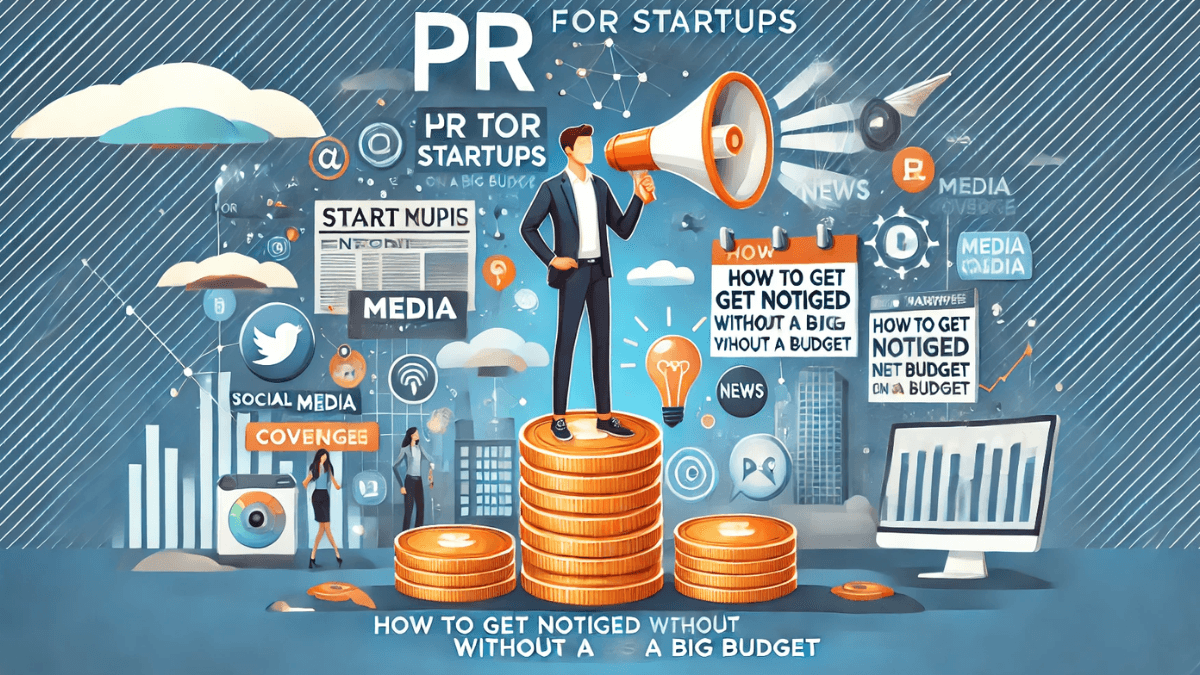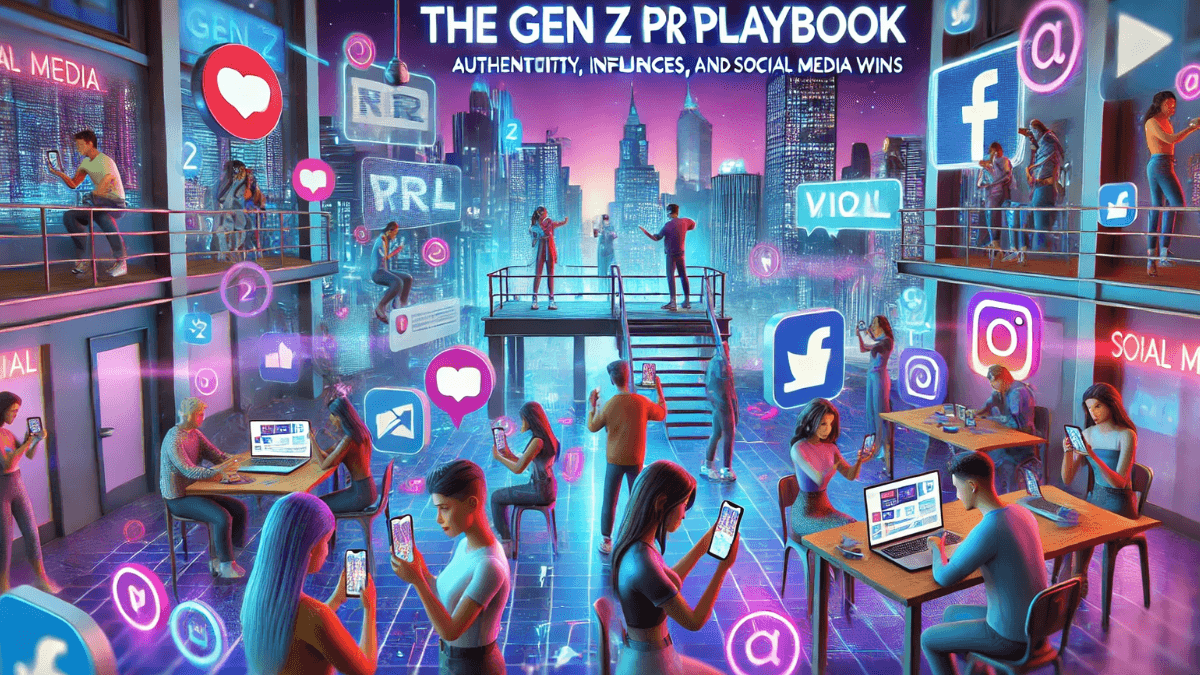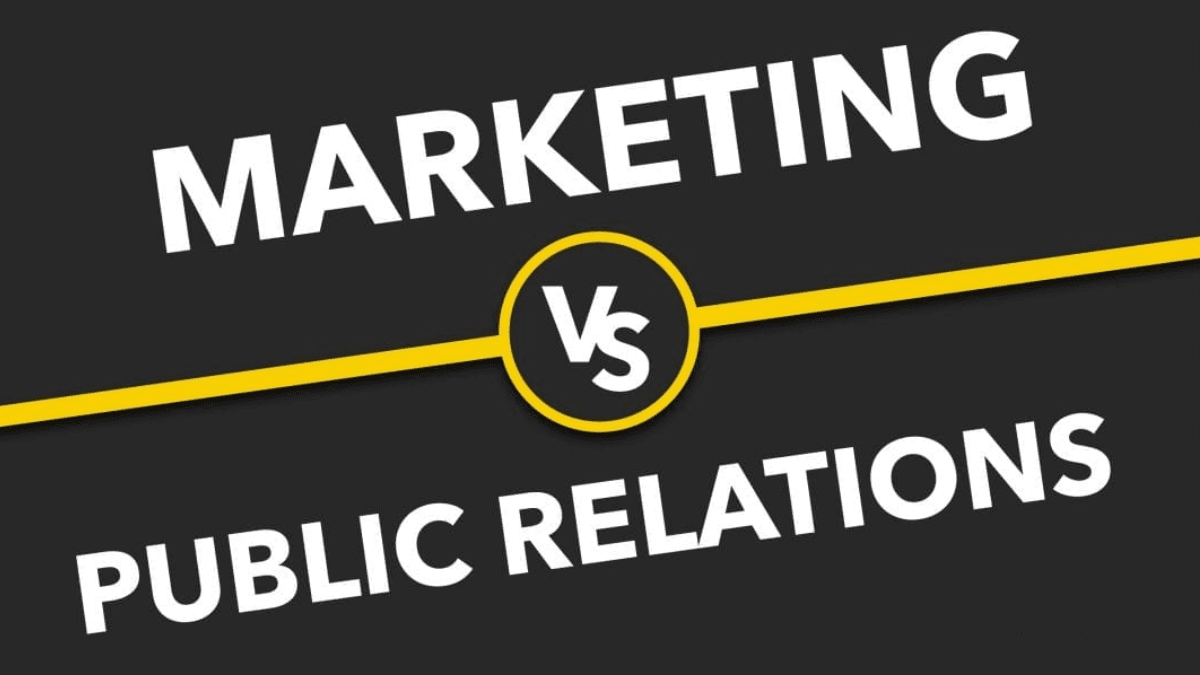How to Choose the Best PR Agency: A Heartfelt Guide to Boosting Your Brand’s Voice
Finding the perfect PR agency isn’t just about ticking boxes—it’s about discovering a partner who gets your brand’s soul.
The right agency can catapult your story into the spotlight, while the wrong fit might leave you feeling invisible.
Let’s cut through the noise and explore how to choose the best PR agency that doesn’t just talk the talk but walks your walk.
Start With Your “Why” (Because Passion Matters)
Before diving into agency portfolios, ask yourself: What’s my ultimate goal?
Are you launching a product, rebuilding reputation, or aiming for industry dominance? Clarity here is everything. Imagine working with a PR team that’s obsessed with tech startups when you’re a sustainable fashion brand.
Awkward, right? Pinpoint your needs first—this compass will steer every decision about how to choose the best PR agency

Seek Industry Whisperers (Not Just Generalists)
You wouldn’t hire a pastry chef to grill a steak. Similarly, a PR agency that excels in healthcare PR might fumble with fintech.
Look for teams with proven success in your niche. Scan their case studies.
Did they turn a local eco-brand into a household name? Have they navigated crisis PR for companies like yours? Expertise isn’t just a buzzword—it’s your safety net.
Chemistry Check: Do They Vibe With Your Vision?
Here’s the truth: PR is personal. You’ll share highs, lows, and midnight brainstorming sessions.
Schedule a coffee chat (virtual or IRL). Do they light up when discussing your goals? Or do they push cookie-cutter strategies? Trust your gut. If conversations feel forced now, imagine six months in. Spoiler: It won’t get better.
Transparency or Bust: Demand Clear Communication
Ever played phone tag with a vendor who ghosts for days? Frustrating. Your PR team should be responsive, proactive, and brutally honest. Ask:
- How often will we meet?
- What metrics will you track?
- Can I see a sample crisis plan?
If they dodge questions or sugarcoat challenges, run. You deserve candor, not fluff.
Budget Wisely—But Don’t Cheap Out
Let’s get real: PR isn’t a line item to minimize. It’s an investment in your brand’s future. While it’s tempting to pick the lowest bidder, remember—you often get what you pay for. Instead, focus on value.
Does the agency offer tiered packages? Can they scale as you grow? A mid-sized firm hungry for your success might out hustle pricier competitors.
Stalk Their Reputation (Yes, Really)
Check reviews, but dig deeper. Scroll their LinkedIn. Have employees stuck around for years? Happy teams often mean happy clients. Peek at client testimonials—do they rave about creativity and grit?
Bonus: Reach out to past clients directly. A quick “Would you hire them again?” can reveal more than any glossy brochure.
Red Flags That Should Send You Sprinting
- Overpromising: “We’ll get you on Forbes in a week!” (Spoiler: They won’t.)
- One-Size-Fits-All Plans: Your brand isn’t a widget. Demand customization.
- Vague Reporting: If they can’t explain how they measure success, neither will you.
The Final Leap: Trust, But Verify
You’ve done the homework. You’ve vibed with the team. Now, take a breath—and trust yourself. The best partnerships thrive on mutual respect and shared hustle. Remember, this isn’t just a vendor relationship. It’s the start of your brand’s next chapter.
Ready to Shine?
Choosing a PR agency is equal parts strategy and heart. It’s about finding those rare allies who see your vision and fight for it like their own. Take your time. Ask the tough questions. And when you find “the one,” you’ll feel it—a spark of confidence that says, “Let’s change the game together.”
Your brand’s story deserves to be heard. Make sure it’s told by the best.
The Influencer Effect: How Micro-Influencers Are Changing Travel Marketing
The Influencer Effect: How Micro-Influencers Are Changing Travel Marketing
Social media has now changed the perspective of people for trips and planning. Earlier, travelers used to take help of travel brochures and ads but now they follow social media influencers for the tips and recommendations. Big names of social media have been populars for years and it is not easy to reach them out whenever you want to, that’s why micro-influencers are becoming the best choice for travel marketing day by day.
Who Are Micro-Influencers?
Creators on social media with less than 100,000 followers are micro influencers. Ofcource they are not popular like celebs, but their followers do believe in them. They have their own base and topics which they focus on. And because they are growing and has smaller audiences, their followers connect with them easily.
Micro-influencers provide a more individualized and efficient means of reaching clients for travel agencies such as hotels, airlines, and tourist firms. They offer genuine experiences that encourage people to travel rather than merely advertising a destination. Their suggestions don’t feel like sponsored ads; rather, they are genuine and accessible.
For example, if a micro-influencer shares their stay at a small beach resort, their followers are more likely to trust the review and book a stay there.
A celebrity, on the other hand, might promote a hotel simply because they were paid for it.
More Affordable Than Big Influencers
Another big advantage of working with micro-influencers is cost. Hiring a celebrity influencer can be very expensive, but micro-influencers charge much less. Instead of paying one big influencer, travel brands can collaborate with multiple micro-influencers to reach different audiences.
Local influencers are even more helpful. For example, if a travel brand wants to promote a destination in Bali, a local influencer from Bali can share better recommendations than someone who has only visited once.
Micro-influencers have better engagement with their followers compared to celebrities. Since they don’t have millions of followers, they can reply to comments, answer questions, and interact more. This builds trust and makes their recommendations more convincing.
Many micro-influencers focus on specific types of travel, such as:
Backpacking and budget travel
Luxury vacations
Adventure travel (hiking, scuba diving, etc.)
Food and cultural tourism
Eco-friendly travel
This allows brands to choose influencers who match their target audience, making their marketing more effective.
How PR Agencies Can Help Travel Brands
PR agencies can help travel brands find the right micro-influencers and create successful campaigns. They do this by:
Selecting influencers with the right audience for the brand.
Building long-term partnerships instead of one-time promotions.
Encouraging influencers to create unique content, like travel challenges or hashtag campaigns.
Tracking performance to see how well the campaign is working.
Nowadays Micro-influencers are building a bridge for travel brands to connect with the audience. They create authentic content to grow which helps the travelers to explore new places in a natural way. Also it is beneficial for the brand because micro-influencers are affordable and bring better results.
For travel brands looking to grow, partnering with micro-influencers through a PR agency is a smart strategy. As social media keeps growing, authentic storytelling will continue to be the best way to attract travelers.
PR for Startups: How to Get Noticed Without a Big Budget
Starting a business is exciting, but getting people to take note of your brand can be a genuine challenge—especially if you do not have a huge budget for public relations (PR). The great news? You do not require millions to create a check. With the proper procedures, indeed, new companies can pick up media consideration and construct a solid brand presence.
In this web journal, we’ll investigate inventive and cost-effective PR procedures that really work for new businesses.
1. Tell a Compelling Brand Story
Individuals interface with stories, not fair items. Your brand ought to have an interesting story—whether it’s around fathoming a common issue, overcoming a challenge, or bringing something inventive to the showcase.
2. Use Social Media for PR
Social media may be a free and effective PR device. Stages like LinkedIn, Twitter, and Instagram permit new businesses to associate specifically with their gathering of people and the media.
Share profitable content (tips, industry patterns, and behind-the-scenes moments).
Lock in with writers and influencers in your specialty.
Utilize trending hashtags to extend visibility.
3. Construct Connections with Writers
You do not require a costly PR organization to induce media scope. Numerous writers are open to stories from startups, especially in case they’re one of a kind and newsworthy.
Discover pertinent writers on Twitter or LinkedIn.
Send personalized emails rather than nonexclusive press releases.
Offer them an elite point on your startup’s travel or a modern item dispatch.
4. Write and Distribute Press Releases Smartly
A well-crafted press release can grab media attention. But instead of blasting it to everyone, focus on targeted outreach.
- Keep it short and newsworthy.
- Include a compelling headline and key facts upfront.
- Distribute it on free PR sites like PRLog, OpenPR, and Medium.
5. Get Featured in Startup Directories & Publications
There are many free and low-cost platforms where startups can get listed or featured, bringing credibility and visibility.
- Submit your startup to directories like Product Hunt, AngelList, and BetaList.
- Pitch your story to websites like YourStory, TechCrunch, and Startup India.
6. Collaborate with Micro-Influencers
Big influencers charge hefty fees, but micro-influencers (1K–50K followers) often promote brands for free products or small incentives.
- Find influencers in your niche and offer them a free product or service in exchange for a shoutout.
- Encourage customers to share their experiences and tag your brand.
7. Organize Low-Cost Virtual Events & Webinars
Hosting online events is a budget-friendly way to build brand credibility and attract attention.
- Organize a free webinar or Q&A session on an industry-related topic.
- Partner with another startup for a co-hosted event to expand your audience.
8. Utilize Quora & Reddit to Build Authority
Stages like Quora and Reddit permit new companies to exhibit their ability without investing a penny. Reply to important questions related to your industry.
Share experiences and unobtrusively specify your startup without spamming.
9. Make Newsworthy Stunts or Challenges
An imaginative stunt or social challenge can go viral and bring enormous PR presentation.
A startup advertising eco-friendly bundling might begin a #NoPlasticChallenge, empowering individuals to dodge plastic for a week and share their encounters.
10. Use Client Tributes & Case Considerations
Nothing offers your brand like cheerful clients. Turn their encounters into stories that pull in media consideration.
Inquire with clients for video tributes and share them on social media.
Change over victory stories into case studies to think about pitching to writers.
PR doesn’t need to be costly. By utilizing these keen, low-cost methodologies, new businesses can pick up media consideration, construct validity, and develop their brand without breaking the bank.
Need to offer assistance with PR? Our organization specializes in making a difference in startups and making the perfect PR procedure. Contact us today!
The Gen Z PR Playbook: Authenticity, Influencers, and Social Media Wins
Gen Z, characterized as those born between 1997 and 2012, is changing the way that brands lock in with their target audiences. Compared to earlier periods, they have less certainty in corporate public relations, pre-planned advancing methods, and preposterously complex brand communications. Or perhaps they emphasize unequivocal quality, honesty, and speedy engagement.
Traditional Public relations, which depended on press releases, media situations, and carefully made brand images, do not reverberate with Era Z. This age bunch inclines toward suggestions from companions, face-to-face intelligence, and uncensored substance. What, at that point, is the reason for this difference, and how can PR offices resolve it?
How Gen Z Consumes News and Brand Messaging
The time of depending exclusively on press releases and formal media exposure to shape public perception has concluded. Gen Z gathers their news and brand insights from:
Social Media: Platforms such as TikTok, Instagram, and YouTube serve as their main sources for information.
Peer Recommendations Over Ads: Gen Z trusts influencers, online reviews, and word-of-mouth more than official corporate messaging.
Short-Form Content:
They favor brief, engaging, and relatable materials instead of broad articles or press occasions.
Meme Culture and Patterns:
Brands that utilize humor, memes, and viral patterns lock in more effectively with this gather. Conventional PR frequently battles to adjust to these advancing propensities, driving Gen Z to feel disengaged from brands that depend on obsolete communication tones.
Why Gen Z Distrusts Corporate PR
Lack of Transparency: Generation Z holds honesty in high regard. When a business makes a mistake, they expect a heartfelt apology instead of a pre-formulated corporate reply.
Too Much Corporate Speak: Public relations messages filled with buzzwords and vague promises come off as insincere to them.
Over-Polished Brand Informing:
They favor reasonable to good, behind-the-scenes substance over too much cleaned takes.
Ignoring Social Causes:
Period Z expects brands to back social and ordinary issues instead of sensibly concentrating on promoting things. Companies that neglect these changes risk evacuating themselves from Gen Z and losing their certainty and engagement.
How PR Organizations Can Win Over Gen Z
1. Grasp Social Media PR
Era Z employs YouTube, Instagram, and TikTok for several hours each day. Rather than depending only on press discharges, open relations groups have to concentrate on:
Brief but curiously video substance
Speedy brand engagement (e.g., replying to comments, taking after patterns)
Working together with micro-influencers
2. Emphasize Authenticity Over Flawlessness
Gen Z does not require brands to be flawless—but they do seek authenticity. PR agencies should:
Include real employees or customers in brand narratives.
Share behind-the-scenes material.
Steer clear of scripted replies to controversies—choose genuine dialogue instead.
3. Leverage Influencer-Led PR
Compared to traditional media, Gen Z places greater trust in relatable influencers. PR firms ought to work together with content producers and micro-influencers.
Prioritize real collaborations over planned promotions.
Encourage influencers to share genuine brand experiences.
4. Make Content Interactive and Engaging
Instead of passive press releases, brands should create:
Polls, Q&A sessions, and live streams
User-generated content campaigns (where customers share their experiences with the brand)
Relatable, humorous, or trendy content (e.g., memes, challenges)
Traditional PR is not dead, but it must evolve to stay relevant to Gen Z. This group expects authentic conversations, rapid exchanges, and communication grounded in values. PR agencies that embrace social-first strategies, utilize influencer marketing, and produce engaging content will thrive in this modern era. The brands that gain Gen Z’s confidence will be those that speak their language, engage on their chosen platforms, and maintain authenticity at every touchpoint.
Crisis Management in the Digital Age: How Brands Can Stay Ahead
Crisis Management in the Digital Age: How Brands Can Stay Ahead
News spreads rapidly these days, particularly through web-based entertainment. A single tweet, wrong rumors, or a terrible survey can definitely harm a brand’s notoriety. This is often why brands must be prepared to handle emergencies viably.
What is a Crisis in the Digital Age?
A small issue can cause a very problematic situation for a brand if it is not handled well because on social media or an online platform, people keep chitchatting about brands.
Types of Brand Crises
Misinformation and Fake News: Inaccurate information about a company can travel quickly and damage its reputation.
Item Issues & Surveys: Clients may stop trusting a brand in the event that something is unsafe or lacking.
Worker Offense: When a laborer acts improperly, it may reflect unfavorably on the business.CT—On the off chance that a worker carries on gravely, it can reflect ineffectively on the company.
Information breaches: Client information spills or hacking can weaken certainty and result in lawful issues.
How Brands Can Handle an Emergency
1. React Rapidly but Wisely
It’s basic to reply instantly but astutely. Individuals can accept they do not care in the event that a brand holds up as well long. Be that as it may, a hurried response can compound the circumstance.
Example: When two dark guys were subjectively captured at a Starbucks in 2018, the company came under fire. Stores were closed down for racial inclination preparation, and the organization expeditiously issued a statement of regret. Believe was reestablished as a result.
2. Watch Online Talks
It is imperative for brands to screen their online reputation. Early issue areas can be made a difference by devices such as social media trackers or Google Cautions.
Case: Nestlé came under fire for utilizing palm oil that wasn’t feasible. Nestlé reacted as well late to a campaign propelled by activists against them. A critical PR issue might have been maintained at a strategic distance with early mediation.
3. Take Obligation and Be Genuine
Disregarding blunders can decline the circumstance. Brands have to recognize their mistakes and give a clarification of how they plan to redress them.
Case: Toyota’s 2010 audit of broken vehicles was taken care of incapably right absent. At the point when the organization, at long last, accepted the obligation and surveyed the vehicles, it helped them with remaking belief.
4. Stop False Information Quickly
Brands should take prompt action to give accurate information if rumors or fake news start to circulate. They can accomplish this by using recognized social media accounts or official remarks.
Example: During the coronavirus, numerous aircraft confronted misleading bits of gossip. Delta Aircraft rectified deception by posting official updates, keeping clients informed.
5. Talk to Your Customers
Connecting straightforwardly with clients during an emergency can keep what is happening from deteriorating. Responding to questions and tending to grumblings helps show that the brand cares.
Example: In 2019, KFC within the UK ran out of chicken. Instead of neglecting the issue, they made a curious advancement, progressing their symbol to say “FCK,” and apologized. This changed an issue into a curious moment, fortifying client unwavering quality.
6. Have a Crisis Plan
Preparation is key. Every brand should have a crisis plan that includes:
A team to handle crises
Pre-written responses for common issues
Clear communication steps
Media training for spokespeople
Enormous brands like Apple and Google plan ahead of time so they can answer rapidly when required.
Emergencies occur, yet they don’t need to destroy a brand. A quick, legitimate, and very much arranged reaction can transform an emergency into a chance to construct trust. Brands that stay alert, convey well, and act rapidly can safeguard their standing and act quickly, can protect their reputation, and even strengthen customer relationships.
How to Make a Story Go Viral: The Science Behind Media Attention
With the advancements in the world today, a brand can either reach the height of success or meet its demise solely on the basis of clicking stories and engagement. One powerful story can drive countless engagement and brand awareness fans on the internet. But what is it that helps a certain brand’s story reach a larger audience? Is it pure chance, or is there more to it?
In this complex web, we will attempt to break down all the elements along with providing information on the brands that have mastered the art of viral public relations.
Elements That Define a Story Going Viral
Emotion Bonds
One core reason a person would choose to share content on social media would be the emotional connection they feel towards it. The emotion could be anything from inspiration, shock, amusement, and much more. The more powerful the emotion felt, the higher the chances of them using the story.
Example: Nike’s “You Can’t Stop Us” campaign
Nike’s advertisement, which featured screen-split videos of various athletes, struggled to show all participants but was able to appeal to many. These advertisements translated to multi-million sales.
Relatability and Realness
Gathering of people: individuals bolt in with stories that show up as veritable and veritable. Brands that outline feebleness or a human perspective regularly draw in more thought.
Example: Dove’s “Real Beauty” Campaign
Dove’s action has gone up against conventional brilliance standards by showing genuine women rather than models. The message was fair to goodness, propelling and resonating, driving it to become one of the preeminent broadly shared publicizing campaigns.
Timing and Pertinence
A story must interface with what is right, presently predominant, or basic. Viral substance routinely locks in with social dialogs, basic happenings, or social improvements.
Example: Oreo’s Super Bowl Tweet
Inside the 2013 Super Bowl control blackout, Oreo posted on Twitter:
“You can still dunk though it’s dark.” The clear yet prompt tweet has to be a minute sensation, laying out the influence of speedy and witty fabric.
A Strong Hook and Shareable Format
The primary few seconds of a video or the primary sentence of a writing decide in case individuals will keep observing or perusing. The less demanding it is to devour and share, the more viral it gets to be.
Example: ALS Ice Bucket Challenge
The challenge empowered individuals to dump a bucket of ice water on themselves and nominate friends. It was fun, locked in, and easy to replicate—leading to millions of offers and raising over $115 million for ALS research.
Influencer and Media Amplification
Getting the proper individuals to share your story boosts its chances of going viral. Celebrities, influencers, and writers offer assistance to intensify messages to a bigger gathering of people.
Example: Fenty Beauty’s Inclusive Launch
Rihanna’s Fenty Magnificence picked up viral consideration by propelling 40 establishment shades, catering to a different gathering of people. Influencers and excellent bloggers shared their reviews, making it one of the most talked-about magnificence brands.
How to Apply These Principles to Your PR Methodology
Center on Emotional Appeal—Tell a story that reverberates along with your audience’s feelings.
Be Authentic—Share genuine encounters, tributes, or behind-the-scenes minutes.
Remain Important—Interface your story to trending points or up-and-coming occasions.
Make It Simple to Share— Utilize recordings, memes, or brief captions that snatch consideration.
Lock in Influencers—Collaborate with industry pioneers or social media influencers to spread your message.
Virality isn’t almost luck—it’s about creating a message that individuals can’t offer assistance but share. By centering on emotions, authenticity, timing, and influencers, you’ll make a PR procedure that gets your brand the consideration it merits.
Need to make a viral PR campaign for your brand? Contact our PR specialists nowadays!
PR vs Marketing: Understanding the Key Differences & How to Leverage Both
Many businesses struggle to tell the difference between public relations (PR) and marketing. While they both aim to promote a brand, their approaches, goals, and outcomes differ. Public relations focuses on building trust through earned media, while marketing emphasizes sales and direct advertising through purchased media. The primary differences between public relations and marketing will be covered in this essay, along with how businesses can employ both to grow.
What is PR?
Public relations, or PR, is the process of managing how stakeholders, the media, and the general public perceive a brand. It consists of items such as:
- Writing and distributing press releases
- Building relationships with journalists and influencers
- Managing a brand’s reputation during crises
- Organizing events and sponsorships
- Securing media coverage in newspapers, TV, and online platforms
Public relations helps a brand become more credible and trustworthy in the eyes of its target audience. It progressively increases strong brand recognition rather than focusing on direct sales.
What is Marketing?
Promoting a product or service to draw clients and increase sales is known as marketing. It uses tactics such as:
- Running advertisements (TV, digital, print, etc.)
- Social media campaigns and promotions
- Email marketing and newsletters
- Search Engine Optimization (SEO) to drive traffic
- Offering discounts, deals, and loyalty programs
Paid media is used in marketing to reach prospective clients, create leads, and boost sales. Marketing, as opposed to PR, is primarily concerned with sales and conversions.
Key Differences Between PR and Marketing
| Feature | PR (Public Relations) | Marketing |
| Goal | Build brand trust & credibility | Drive sales & revenue |
| Media Type | Earned media (news, blogs, reviews) | Paid media (ads, promotions) |
| Focus | Reputation management | Customer acquisition & retention |
| Timeframe | Long-term strategy | Short-term campaigns |
While marketing actively promotes goods and services, public relations indirectly enhances brand impression.
Earned Media vs. Paid Media
- Earned Media (PR): Free advertising that a brand receives from influencer mentions, news stories, interviews, and consumer reviews. Although more believable, it is more difficult to manage.
- Paid Media (Marketing): Sponsored advertisements, social media promotions, and influencer collaborations. Although it gives you more control, it doesn’t have the same credibility as earned media. Both are essential for growing a company, but earned media has long-term value while purchased media provides instant advantages.
When Does a Brand Need PR Over Marketing?
In several circumstances, PR is more advantageous than marketing, including:
- Combine SEO and PR: Website rankings are raised when PR campaigns obtain backlinks from reliable sources.
- Product Launches: Without spending money on advertisements, a solid PR campaign can create media buzz.
- Brand positioning: PR uses expert opinions and interviews to help brands become leaders in their field.
- Trust Building: PR creates credibility, which marketing alone cannot achieve.
If a business only relies on marketing without PR, it may struggle with brand trust in the long run.
How to Use PR and Marketing Together
To maximize brand success, businesses should integrate both PR and marketing strategies. Here’s how:
- Use PR to Create Awareness: Get featured in news outlets and blogs to gain credibility.
- Boost Marketing with PR Content: Use positive media coverage in your ads and promotions.
- Combine SEO and PR: Website rankings are raised when PR campaigns obtain backlinks from reliable sources.
- Leverage Influencer Partnerships: Marketing guarantees visibility through sponsored partnerships, while PR assists in obtaining unpaid influencer mentions.
- Track Brand Reputation: Marketing concentrates on client interaction and sales, whereas PR manages public perception.
PR and marketing work together to develop a strong brand strategy that guarantees sales, visibility, and reputation.
Marketing and public relations are two sides of the same coin. Marketing increases engagement and revenue, and PR enhances reputation and trust. Businesses can expand their customer base, build a strong brand identity, and maintain long-term success by combining the two. In today’s cutthroat market, knowing when to employ each tactic could make all the difference.
Brands may maintain their relevance, reputation, and profitability by skillfully striking a balance between marketing and public relations.
How Friends Media PR Averted a Crisis and Restored a Businessman’s Tarnished Reputation
Friends Media PR Crisis Management in Public Relations is the process of anticipating, preventing, and managing potential crises that could damage a company’s reputation, brand image, or financial stability. It involves developing strategies and plans to effectively respond to and mitigate the negative impact of such crises.
Key Components of Crisis Management:
Crisis Communication Plan: A detailed plan outlining roles, responsibilities, and procedures to follow during a crisis.
Crisis Team: A designated group of individuals responsible for managing the crisis and communicating with stakeholders.
Media Training: Training employees on how to handle media inquiries and avoid making harmful statements.
Monitoring and Early Warning Systems: Systems to identify potential threats and issues before they escalate.
Rapid Response: The ability to respond quickly and effectively to a crisis.
Reputation Management: Strategies to protect and restore a company’s reputation after a crisis.

Client Story (The client’s name used here is not real)
Friends Media PR: A Crisis Averted
When a prominent businessman, Mr. Patel, found himself wrongfully accused and imprisoned by his competitors, his reputation and business were on the brink of collapse.
The false allegations spread like wildfire through traditional and digital media, tarnishing his image and causing irreparable damage to his brand.
Desperate to salvage his reputation, Mr. Patel turned to Friends Media PR, a renowned crisis management agency. Recognizing the urgency of the situation, Friends Media PR swiftly assembled a crisis management team to devise a strategic plan.
Phase 1: Damage Assessment and Rapid Response
The team conducted a thorough assessment of the media landscape, analyzing the extent of the negative coverage and identifying key stakeholders.
They immediately initiated a crisis communication plan, issuing a public statement refuting the false allegations and assuring stakeholders of Mr. Patel’s innocence.
Read Something Special About Us
Phase 2: Media Outreach and Reputation Repair
Friends Media PR leveraged its extensive media network to reach out to journalists and influencers, providing them with accurate information and counteracting the false narratives. They worked tirelessly to correct misinformation and restore Mr. Patel’s reputation.
Phase 3: Digital Footprint Management
Recognizing the power of digital media, Friends Media PR focused on managing Mr. Patel’s online presence.
They worked to remove or suppress the defamatory content from search engine results, social media platforms, and online news outlets.
Phase 4: Public Relations Campaign
To rebuild trust and credibility, Friends Media PR launched a public relations campaign highlighting Mr. Patel’s contributions to the industry and his commitment to ethical business practices.
They organized interviews, press conferences, and op-eds to showcase his positive image and counter the negative publicity.
Results:
Through their strategic efforts, Friends Media PR successfully mitigated the damage caused by the false accusations. They managed to remove or suppress most of the defamatory content, restoring Mr. Patel’s reputation and preventing further harm to his business. The agency’s expertise in crisis management played a crucial role in safeguarding his career and preserving his legacy.
What Exactly is PR? Why Brands Need PR?
Imagine your brand as a star, waiting to burst onto the scene. Without PR, it’s like a hidden gem, undiscovered and unappreciated. PR is the spotlight, the audience, and the standing ovation that transforms your brand from a mere concept into a shining star!!
PR is not simply about media relations; it is about telling a story in a way that potential customers find appealing and believable and helps you to increase your business.
Think of PR as a powerful tool that can:
1) Enhance brand visibility: By placing your brand in front of the right eyes at the right time, PR can increase your brand’s awareness and reach.
2) Build credibility: Through strategic media placements and thought leadership opportunities, PR can establish your brand as an industry expert and build trust with your target audience.
3) Drive traffic and conversions: Because PR can create desire and lead people to your website or your store, it means that PR can help boost your website traffic and therefore help you sell.
4) Manage reputation: By addressing crises proactively and building positive relationships with key stakeholders, PR can help protect your brand’s reputation and mitigate negative publicity.
Additionally, some specific examples of how PR can help a business are:
1) A new product launch: PR can generate buzz around a new product or service by securing media coverage, organizing press events, and creating social media campaigns.
2) A crisis management situation: PR can help a company respond to a crisis in a timely and effective manner by communicating with stakeholders, managing media inquiries, and taking steps to mitigate damage to the brand’s reputation.
3) Thought leadership: PR can help a company establish itself as an industry leader by securing speaking engagements, writing articles, and contributing to industry publications.
4) Building relationships with key stakeholders: PR can help a company build positive relationships with key stakeholders, such as journalists, influencers, and industry analysts, which can be beneficial for the company’s long-term success.
So, are you ready to step into the spotlight and let your brand shine?
PR isn’t just a luxury; it’s an essential ingredient for success. It’s the secret sauce that turns ordinary into extraordinary. Let’s create a story together that’s worth telling.
Follow us on our socials:












